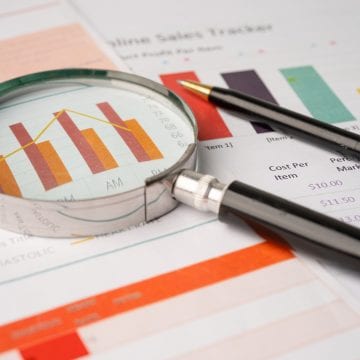There are many common misconceptions about data analytics and the role it has to play in informing modern business strategies. One of the most persistent is that data analytics is an intense, expensive process that requires a significant number of resources and highly specialised knowledge. However, the truth is that even small businesses can gather and analyse data in the same way that big businesses do.
With sufficient data to analyse, any business can develop the same advantages that used to be reserved for big companies with dedicated data analysts working for them. Below is everything a small business owner needs to know to benefit from data in the same way their largest competitors do.

Why data matters
The insight gained through robust data collection and analytics processes is far too valuable for any business to pass up. All the tools you need to gather, organise, and analyse data within your business are now readily available to anyone sufficiently motivated to make use of them; there is no longer a significant financial barrier keeping smaller businesses from developing a data analytics strategy.
When it is approached in the right way, data analytics can provide businesses with the information they need to decide on their corporate strategy. By analyzing data, businesses don’t just have objective metrics they can use to assess their performance; they can also find the answers to questions that they didn’t even know to ask.
What is big data?
Big data is exactly what it sounds like; it’s the collection and analysis of big databases that contain vast volumes of data. The idea is that by using as much data as possible, analysts will be able to draw out more useful information and learn more than they would with a more modest database.
Most businesses today have digitised their admin; even the smallest businesses rely on computers to some extent. As a consequence of this, most companies are generating significant volumes of data every day. Unfortunately, many of them are letting it all go to waste.
You don’t need to be running a huge multinational behemoth to embrace big data. Even small businesses will have plenty of data to work with if they start paying attention to it.

Beware of bad data
Perhaps the most important aspect of big data for businesses is the collection of raw data. The type of data you collect and the way that you collect it will both affect everything else that happens further down the line. Sloppy data collection methods can make things confusing later on and introduce junk data into your databases. Junk data is data that, for whatever reason, shouldn’t be included in your final analysis.
For example, if you have a survey that asks the respondents age, it is safe to assume that an age of ‘500’ would indicate a mistake in the collection process. If you then want to work out the mean age of your respondents, you don’t want to include the obviously erroneous figure in your calculations.
Gathering data the right way
Data has endless potential uses. Before you start at data collection exercise, you should know what data you are looking for and why. You may well learn things that had never occurred to you after you analyse your data, but you should always have an objective from the beginning.
When data is generated automatically for you, such as your sales figures for each day, you don’t have to worry so much about how you gather it. But when you are using respondents for their feelings, and you are relying on more ambiguous data, you need to know what your purpose is beforehand. The purpose you choose will determine the best way of phrasing questions, and the kind of responses you are looking for.

Choosing the right tools
When it comes to eliciting qualitative responses from your users, or even your staff, surveys are generally the preferred method. Surveys are powerful reporting tools because they can be used to gather any type of information you want; you can complete control over the questions contained within.
Don’t worry; long gone are the days when conducting a survey meant standing out in the rain with a clipboard and pencil. Digital surveys mean that sending a single survey to a large number of respondents is no longer expensive and time-consuming. For conducting surveys today, businesses use software like Tapapp.
Tapapp is available as an app for iOS phones and tablets, as well as an online browser version. It is one of the most straightforward and painless ways of building mobile forms and generating reports paperlessly. You can either have your staff administer the surveys to customers in the field, or you can distribute your surveys far and wide using a simple link.
You can minimise the amount of junk data your surveys generate, thanks to an array of features, including the ability to make mandatory questions and provide users error notifications where the data they input is formatted incorrectly.
Users build their surveys via a drag-and-drop interface that couldn’t be any simpler to use. If you have an idea for a survey, Tapapp is the fastest way of making it a reality.

Analysing effectively
Gathering vast amounts of high-quality data isn’t much help if you don’t know how to analyse it afterwards. Data analytics is a complicated subject; it’s not something you can learn overnight. If you are new to this world, we strongly recommend working with a data analytics professional. They can explain how to process your raw data once you’ve gathered it and how to dig into what it reveals.
Some data collection software, including Tapapp, also offers analytics features. However, while these can be helpful, you should also aim to understand the process yourself. That way, you won’t be limited to the conclusions your software offers.
For small businesses, the biggest obstacle to utilising big data concepts is access to the necessary data. The smaller your business is, the less data you will routinely generate. But if you are willing to seize the initiative and start hunting for data yourself, there’s no reason that even the smallest business can’t take advantage of the promise big data offers.
More in our blog:
